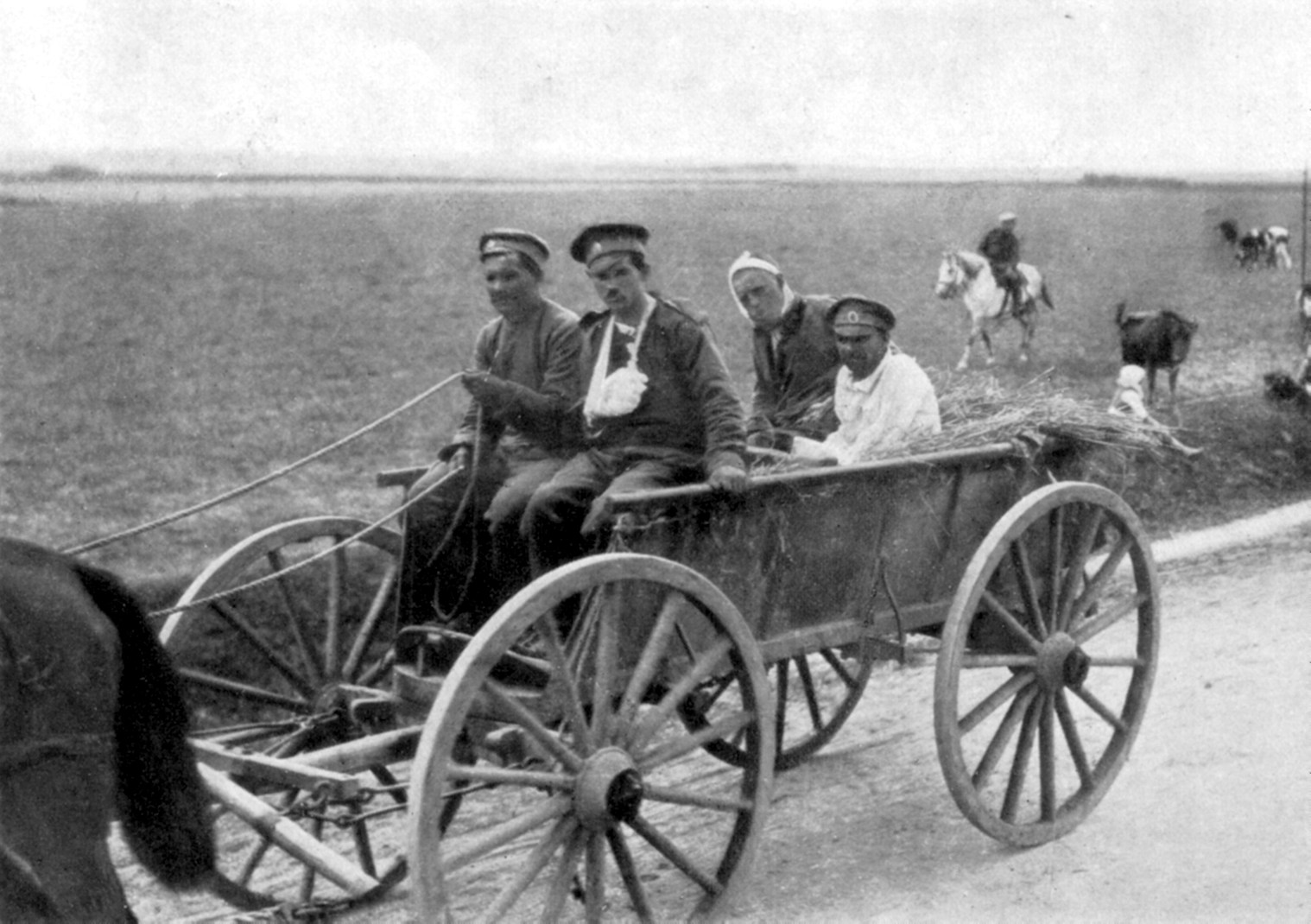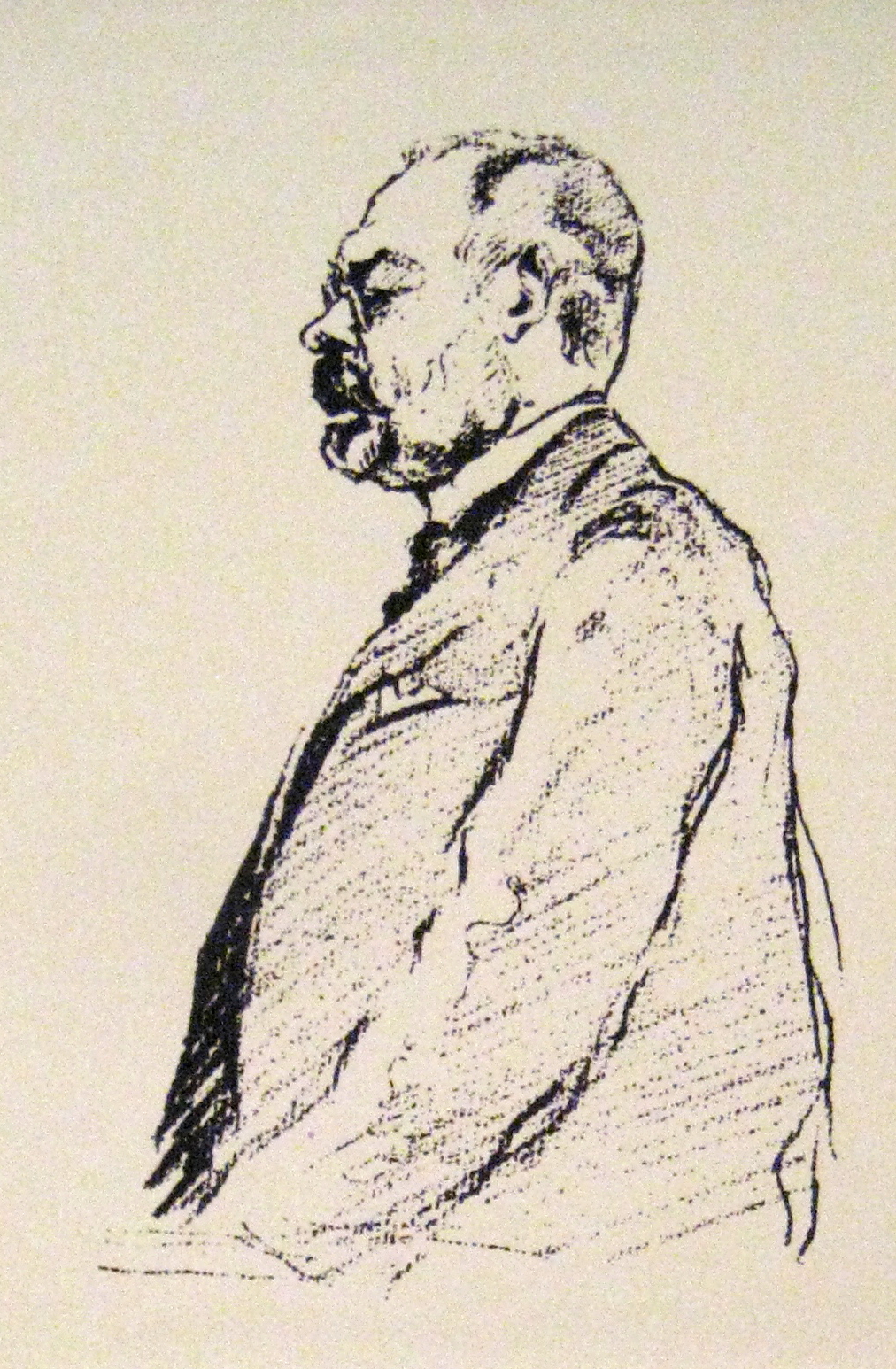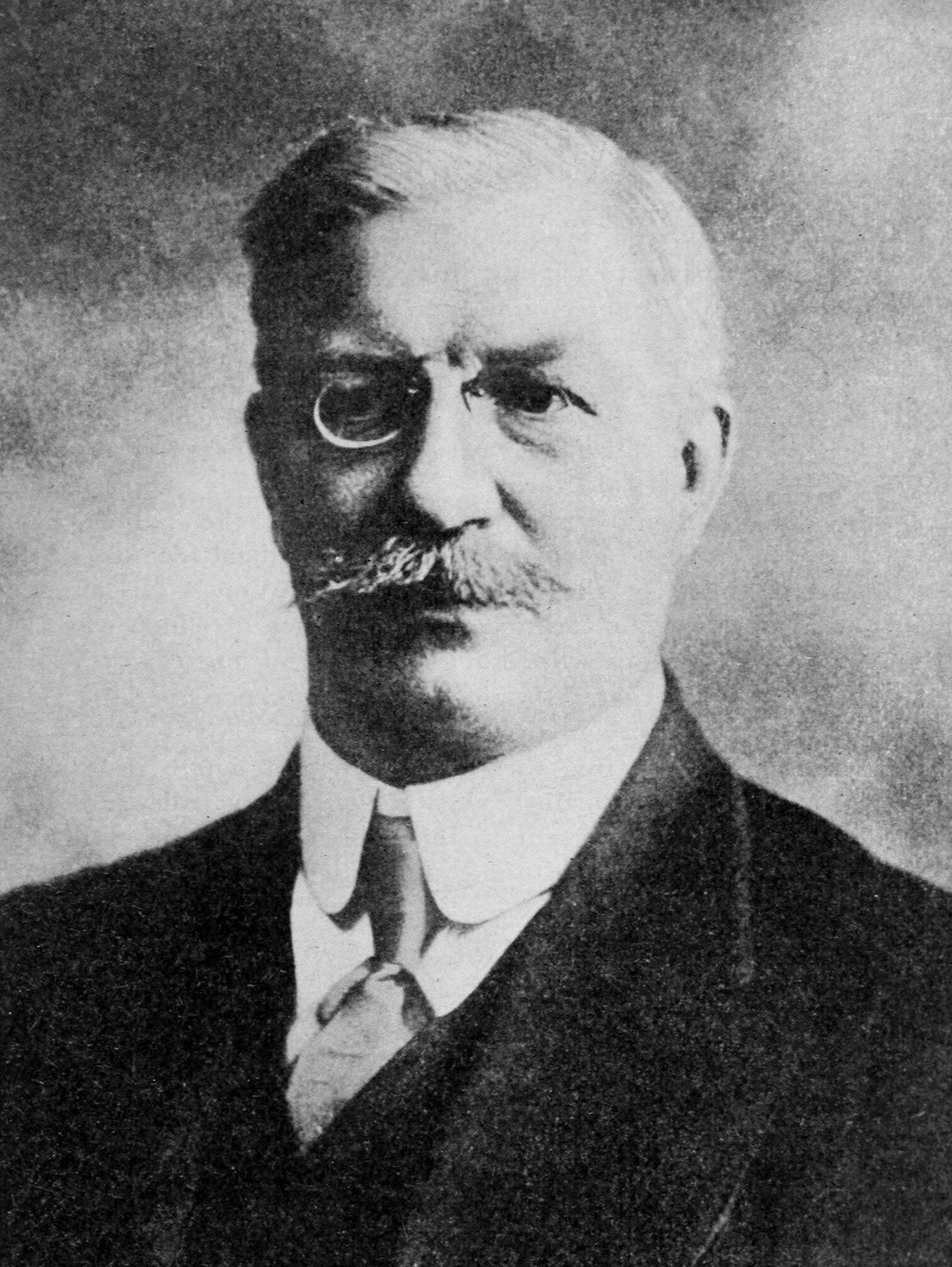|
Sergey Taboritsky
Sergey Vladimirovich Taboritsky (; 12 August 1897 – 16 October 1980) was a Russian journalist, renowned for his nationalist, monarchist, and antisemitic positions. From 1936 to 1945, he was the deputy of the Bureau for the Russian Refugees in Germany. After 1942, Taboritsky became a member of the Nazi Party, and directly collaborated with the Gestapo. Biography Early years Sergey and his younger brother, Nikolay Taborisky (the spelling of his name at the beginning of the twentieth century was inconsistent; during the emigration years, the "Taboritsky" variant was used) were the illegitimate children of Anna Vladimirovna and her cohabitant, Sergey Alexandrovich Zapevalov (who broke up with her in 1901). His mother was a baptized Jewish tailor and owner of a fashion shop. Both brothers were raised as Orthodox Christians. Taboritsky's godfather was the future Ober-Procurator . The brothers had the surname of Anna Vladimirovna's first husband, also Jewish, Wulf Aizikovich Ta ... [...More Info...] [...Related Items...] OR: [Wikipedia] [Google] [Baidu] |
Russian Empire
The Russian Empire was an empire that spanned most of northern Eurasia from its establishment in November 1721 until the proclamation of the Russian Republic in September 1917. At its height in the late 19th century, it covered about , roughly one-sixth of the world's landmass, making it the list of largest empires, third-largest empire in history, behind only the British Empire, British and Mongol Empire, Mongol empires. It also Russian colonization of North America, colonized Alaska between 1799 and 1867. The empire's 1897 census, the only one it conducted, found a population of 125.6 million with considerable ethnic, linguistic, religious, and socioeconomic diversity. From the 10th to 17th centuries, the Russians had been ruled by a noble class known as the boyars, above whom was the tsar, an absolute monarch. The groundwork of the Russian Empire was laid by Ivan III (), who greatly expanded his domain, established a centralized Russian national state, and secured inde ... [...More Info...] [...Related Items...] OR: [Wikipedia] [Google] [Baidu] |
February Revolution
The February Revolution (), known in Soviet historiography as the February Bourgeois Democratic Revolution and sometimes as the March Revolution or February Coup was the first of Russian Revolution, two revolutions which took place in Russia in 1917. The main events of the revolution took place in and near Petrograd (now Saint Petersburg), the then-capital of Russia, where long-standing discontent with the monarchy erupted into mass protests against food rationing on 23 February Old Style and New Style dates, Old Style (8 March Old Style and New Style dates, New Style). Revolutionary activity lasted about eight days, involving mass demonstrations and violent armed clashes with police and Special Corps of Gendarmes, gendarmes, the last loyal forces of the Russian monarchy. On 27 February O.S. (12 March N.S.), most of the forces of the capital's garrison sided with the revolutionaries. In the same day, the Russian Provisional Government, made up by left-leaning State Duma (Russ ... [...More Info...] [...Related Items...] OR: [Wikipedia] [Google] [Baidu] |
Vladimir Dmitrievich Nabokov
Vladimir Dmitrievich Nabokov (; – 28 March 1922) was a Russian criminologist, journalist, and progressive statesman during the last years of the Russian Empire. He was the father of Russian-American author Vladimir Nabokov. Early life Nabokov was born in Tsarskoe Selo, into a wealthy and aristocratic family. His father Dmitry Nabokov (1827–1904) was a Justice Minister in the reign of Alexander II from 1878 to 1885, and his mother Maria von Korff (1842–1926) was a Baroness from a prominent Baltic German family in Courland. He studied criminal law at the University of St. Petersburg and taught criminology at the Imperial School of Jurisprudence. Nabokov married Elena Ivanovna Rukavishnikova in 1897 with whom he had five children. Their eldest son was the writer and lepidopterist Vladimir Vladimirovich Nabokov, who portrayed his father in his memoirs (''Speak, Memory'', 1967) and included in his novel ''Pale Fire'' a scene of misdirected assassination evok ... [...More Info...] [...Related Items...] OR: [Wikipedia] [Google] [Baidu] |
Pavel Milyukov
Pavel Nikolayevich Milyukov ( rus, Па́вел Никола́евич Милюко́в, p=mʲɪlʲʊˈkof; 31 March 1943) was a Russian historian and liberal politician. Milyukov was the founder, leader, and the most prominent member of the Constitutional Democratic party (known as the ''Kadets''). He changed his view on the monarchy between 1905 and 1917. In the Russian Provisional Government, he served as Foreign Minister, working to prevent Russia's exit from the First World War. Pre-revolutionary career Pavel was born in Moscow in the upper-class family of Nikolai Pavlovich Milyukov, a professor in architecture who taught at the Moscow School of Painting, Sculpture and Architecture. Milyukov was a member of the House of Milukoff. Milyukov studied history and philology at the Moscow University, where he was influenced by Herbert Spencer, Auguste Comte, and Karl Marx. His teachers were Vasily Klyuchevsky and Paul Vinogradoff. In summer 1877 he briefly took part in R ... [...More Info...] [...Related Items...] OR: [Wikipedia] [Google] [Baidu] |
Alexander Guchkov
Alexander Ivanovich Guchkov (; 14 October 1862 – 14 February 1936) was a Russian politician, Chairman of the Third Duma and Minister of War in the Russian Provisional Government. Early years Alexander Guchkov was born in Moscow. Unlike most of the conservative politicians of that time, Guchkov did not belong to the Russian nobility. His father, the grandson of a peasant, was a factory owner of some means, whose family came from a stock of Old Believers who had acknowledged the authority of the Russian Orthodox Church while keeping their ancient ritual. His mother was French. Guchkov studied history and humanities at the Moscow State University, and, after having gone through his military training in a grenadier regiment, left for Germany where he read political economy in Berlin under Schmoller. Academic studies were, however, not suited to his active and adventurous character. He gave them up and started traveling. He rode alone on horseback through Mongolia to western Si ... [...More Info...] [...Related Items...] OR: [Wikipedia] [Google] [Baidu] |
Soviet Union
The Union of Soviet Socialist Republics. (USSR), commonly known as the Soviet Union, was a List of former transcontinental countries#Since 1700, transcontinental country that spanned much of Eurasia from 1922 until Dissolution of the Soviet Union, it dissolved in 1991. During its existence, it was the list of countries and dependencies by area, largest country by area, extending across Time in Russia, eleven time zones and sharing Geography of the Soviet Union#Borders and neighbors, borders with twelve countries, and the List of countries and dependencies by population, third-most populous country. An overall successor to the Russian Empire, it was nominally organized as a federal union of Republics of the Soviet Union, national republics, the largest and most populous of which was the Russian SFSR. In practice, Government of the Soviet Union, its government and Economy of the Soviet Union, economy were Soviet-type economic planning, highly centralized. As a one-party state go ... [...More Info...] [...Related Items...] OR: [Wikipedia] [Google] [Baidu] |
Paul Milyukov
Pavel Nikolayevich Milyukov ( rus, Па́вел Никола́евич Милюко́в, p=mʲɪlʲʊˈkof; 31 March 1943) was a Russian historian and liberal politician. Milyukov was the founder, leader, and the most prominent member of the Constitutional Democratic party (known as the ''Kadets''). He changed his view on the monarchy between 1905 and 1917. In the Russian Provisional Government, he served as Foreign Minister, working to prevent Russia's exit from the First World War. Pre-revolutionary career Pavel was born in Moscow in the upper-class family of Nikolai Pavlovich Milyukov, a professor in architecture who taught at the Moscow School of Painting, Sculpture and Architecture. Milyukov was a member of the House of Milukoff. Milyukov studied history and philology at the Moscow University, where he was influenced by Herbert Spencer, Auguste Comte, and Karl Marx. His teachers were Vasily Klyuchevsky and Paul Vinogradoff. In summer 1877 he briefly took part in Russo- ... [...More Info...] [...Related Items...] OR: [Wikipedia] [Google] [Baidu] |
Nazism
Nazism (), formally named National Socialism (NS; , ), is the far-right totalitarian socio-political ideology and practices associated with Adolf Hitler and the Nazi Party (NSDAP) in Germany. During Hitler's rise to power, it was frequently referred to as Hitler Fascism () and Hitlerism (). The term " neo-Nazism" is applied to other far-right groups with similar ideology, which formed after World War II, and after Nazi Germany collapsed. Nazism is a form of fascism, with disdain for liberal democracy and the parliamentary system. Its beliefs include support for dictatorship, fervent antisemitism, anti-communism, anti-Slavism, anti-Romani sentiment, scientific racism, white supremacy, Nordicism, social Darwinism, homophobia, ableism, and the use of eugenics. The ultranationalism of the Nazis originated in pan-Germanism and the ethno-nationalist '' Völkisch'' movement which had been a prominent aspect of German ultranationalism since the late 19th centu ... [...More Info...] [...Related Items...] OR: [Wikipedia] [Google] [Baidu] |
Fyodor Vinberg
Fyodor Viktorovich Vinberg (; – 14 February 1927) was a right-wing Russian military officer, publisher and journalist. Early life Born in Kiev in the family of a general with German background, Vinberg studied in high school in Kiev and in the Alexander Lyceum. From 1891 to 1892, he worked in the Ministry of Internal Affairs. In 1893, he entered military service. Serving in the cavalry, he rose to the rank of colonel in 1911. In the years before World War I, he became involved in extreme right-wing politics, joining the Black-Hundredist Union of Archangel Michael and writing for right-wing publications. During the war, he commanded the Second Baltic cavalry regiment. He became personally acquainted with Tsarina Aleksandra for whom he developed a strong emotional attachment. There were even rumours of an affair. After the February Revolution, he left the army. Revolutionary Russia After the October Revolution, he was imprisoned by the Bolsheviks for his role in an all ... [...More Info...] [...Related Items...] OR: [Wikipedia] [Google] [Baidu] |
Protocols Of The Elders Of Zion
''The Protocols of the Elders of Zion'' is a fabricated text purporting to detail a Jewish plot for global domination. Largely plagiarized from several earlier sources, it was first published in Imperial Russia in 1903, translated into multiple languages, and disseminated internationally in the early part of the 20th century. It played a key part in popularizing belief in an international Jewish conspiracy. The text was exposed as fraudulent by the British newspaper '' The Times'' in 1921 and by the German newspaper '' Frankfurter Zeitung'' in 1924. Beginning in 1933, distillations of the work were assigned by some German teachers, as if they were factual, to be read by German schoolchildren throughout Nazi Germany. It remains widely available in numerous languages, in print and on the Internet, and continues to be presented by antisemitic groups as a genuine document. It has been described as "probably the most influential work of antisemitism ever written". Creation The ... [...More Info...] [...Related Items...] OR: [Wikipedia] [Google] [Baidu] |
Munich
Munich is the capital and most populous city of Bavaria, Germany. As of 30 November 2024, its population was 1,604,384, making it the third-largest city in Germany after Berlin and Hamburg. Munich is the largest city in Germany that is not a state of its own. It ranks as the 11th-largest city in the European Union. The metropolitan area has around 3 million inhabitants, and the broader Munich Metropolitan Region is home to about 6.2 million people. It is the List of EU metropolitan regions by GDP#2021 ranking of top four German metropolitan regions, third largest metropolitan region by GDP in the European Union. Munich is located on the river Isar north of the Alps. It is the seat of the Upper Bavaria, Upper Bavarian administrative region. With 4,500 people per km2, Munich is Germany's most densely populated municipality. It is also the second-largest city in the Bavarian language, Bavarian dialect area after Vienna. The first record of Munich dates to 1158. The city ha ... [...More Info...] [...Related Items...] OR: [Wikipedia] [Google] [Baidu] |
Mecklenburg
Mecklenburg (; ) is a historical region in northern Germany comprising the western and larger part of the federal-state Mecklenburg-Western Pomerania. The largest cities of the region are Rostock, Schwerin, Neubrandenburg, Wismar and Güstrow. The name Mecklenburg derives from a castle named '' Mikilenburg'' (Old Saxon for "big castle", hence its translation into Neo-Latin and Greek as ), located between the cities of Schwerin and Wismar. In Slavic languages it was known as ''Veligrad'', which also means "big castle". It was the ancestral seat of the House of Mecklenburg; for a time the area was divided into Mecklenburg-Schwerin and Mecklenburg-Strelitz among the same dynasty. Linguistically Mecklenburgers retain and use many features of Low German vocabulary or phonology. The adjective for the region is ''Mecklenburgian'' or ''Mecklenburgish'' (); inhabitants are called Mecklenburgians or Mecklenburgers (). Geography Mecklenburg is known for its mostly flat countryside. M ... [...More Info...] [...Related Items...] OR: [Wikipedia] [Google] [Baidu] |







